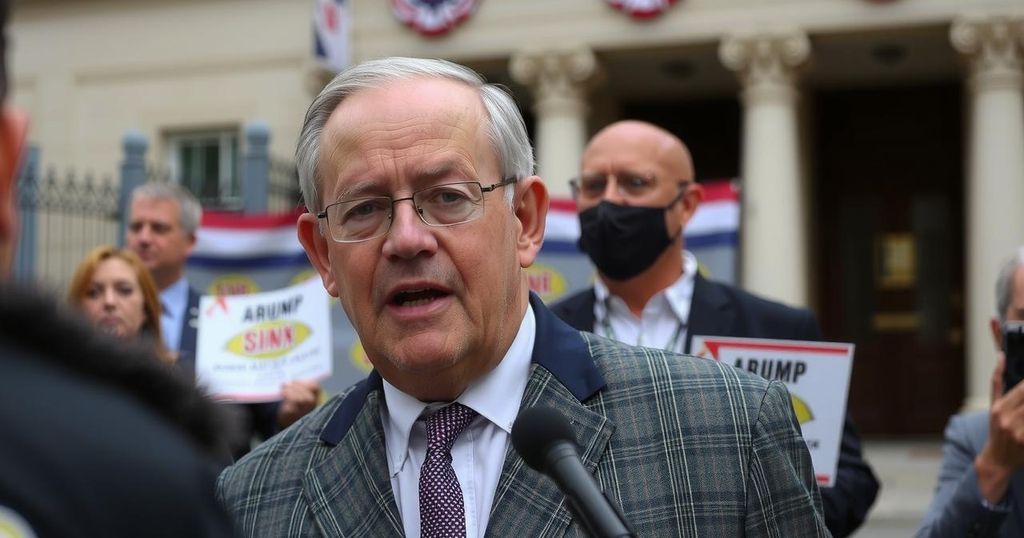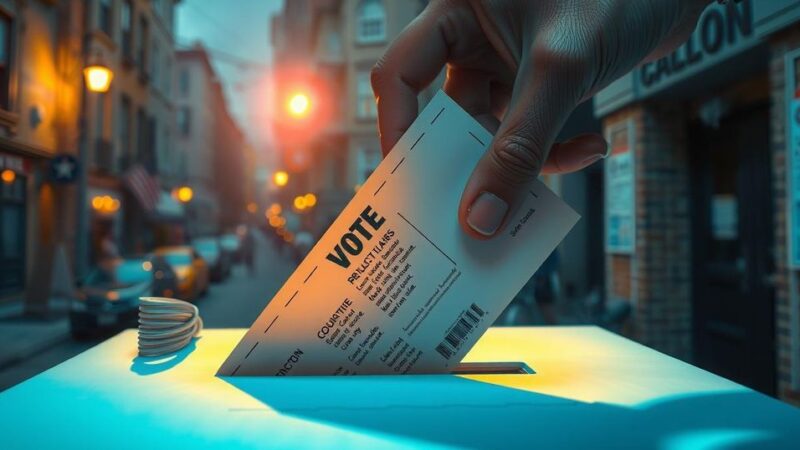Five Venezuelan opposition figures in the Argentine Embassy claim a month-long power outage has led to a governmental ‘siege,’ resulting in human rights violations. While they assert that their sanctuary has turned into a prison, government officials deny any siege, attributing the issues to nonpayment. The situation exacerbates already strained diplomatic relations between Argentina and Venezuela amid ongoing political turmoil.
Five opposition figures from Venezuela are currently sheltering in the Argentine Embassy in Caracas, having experienced a prolonged power outage for over thirty-five days. The activists maintain that they are enduring a siege by President Nicolás Maduro’s government, which is alleged to have disrupted their electricity and water supplies since the end of November. Magalli Meda, an advisor to prominent opposition leader María Corina Machado, condemned this situation as a violation of their human rights, emphasizing that the building has effectively become an “embassy prison”.
The opposition members sought refuge in the embassy in March after arrest warrants were issued against them for purported attempts to destabilize the country. Despite their claims of a siege, Venezuelan Interior Minister Diosdado Cabello countered that the disruption of services results from nonpayment rather than any coordinated government action against the opposition figures.
Complicating their situation, a sixth opposition member, Fernando Martínez Mottola, voluntarily surrendered last week and has since been released on conditional terms. The opposition maintains that their selected presidential candidate, Edmundo González Urrutia, won the elections held on July 28, which the state electoral commission, seen as biased, declared in favor of Maduro. Consequently, the legitimacy of the election results has been disputed by numerous countries worldwide.
The diplomatic relations between Argentina and Venezuela have become increasingly strained. Argentina’s diplomatic personnel vacated the embassy in August following public criticisms from President Javier Milei regarding the election results. Meda asserted that the Maduro government has actively limited visits from foreign diplomats, stating, “No ambassador has come to this Embassy, not one,” and suggested that the authorities have threatened diplomats with expulsion should they engage with the opposition asylum seekers.
The situation in Venezuela has deteriorated under the leadership of Nicolás Maduro, particularly for those opposing his regime. Various international actors, including Argentina, have expressed concern regarding the legitimacy of elections and the treatment of opposition figures. The Argentine Embassy in Caracas has become a refuge for several opposition activists who are attempting to evade persecution following their claims of electoral misconduct. The strained diplomatic relationship between Argentina and Venezuela adds another layer to the ongoing crisis, particularly as geopolitical tensions reflect on humanitarian concerns.
The ongoing plight of five Venezuelan opposition figures sheltering in the Argentine Embassy has highlighted significant human rights concerns amidst a political crisis. Their claims of a government-imposed siege due to critical utility disruptions raise questions about the rule of law and democratic integrity under Nicolás Maduro. As international relations grow increasingly tense, particularly with Argentina, the situation remains precarious for those using diplomatic sanctuary to escape authoritarian measures.
Original Source: www.batimes.com.ar






